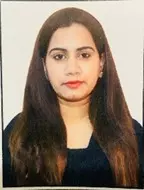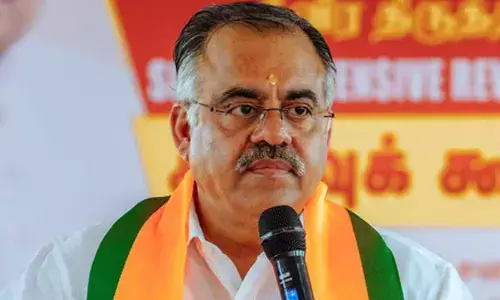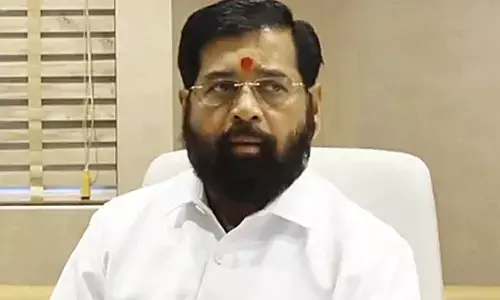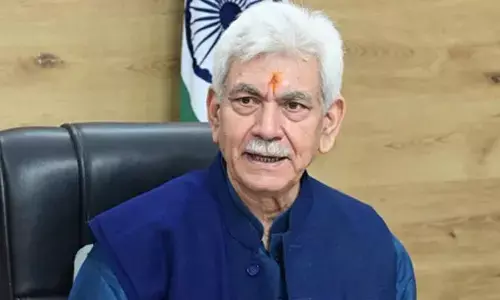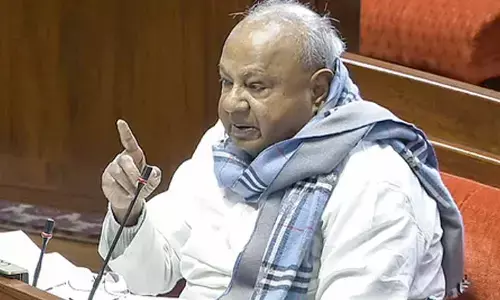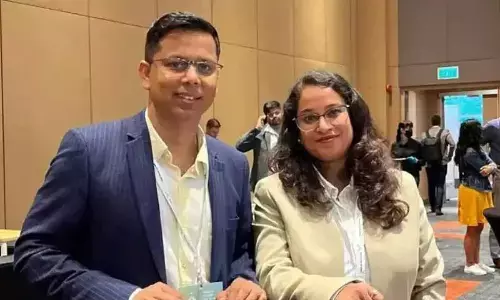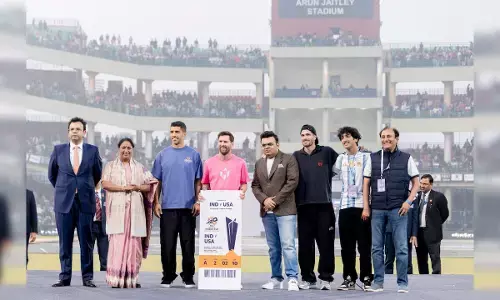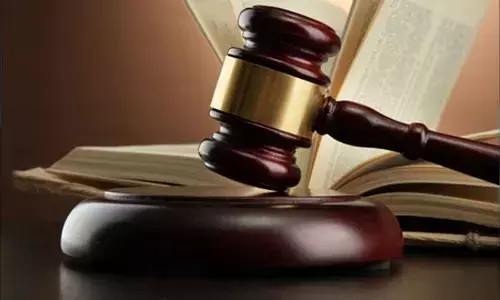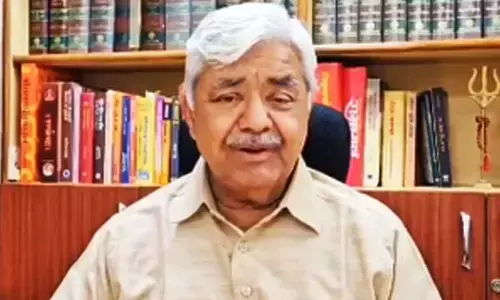Union Minister G Kishan Reddy welcomes the decision of the Cabinet to implement 'One Nation, One Election'
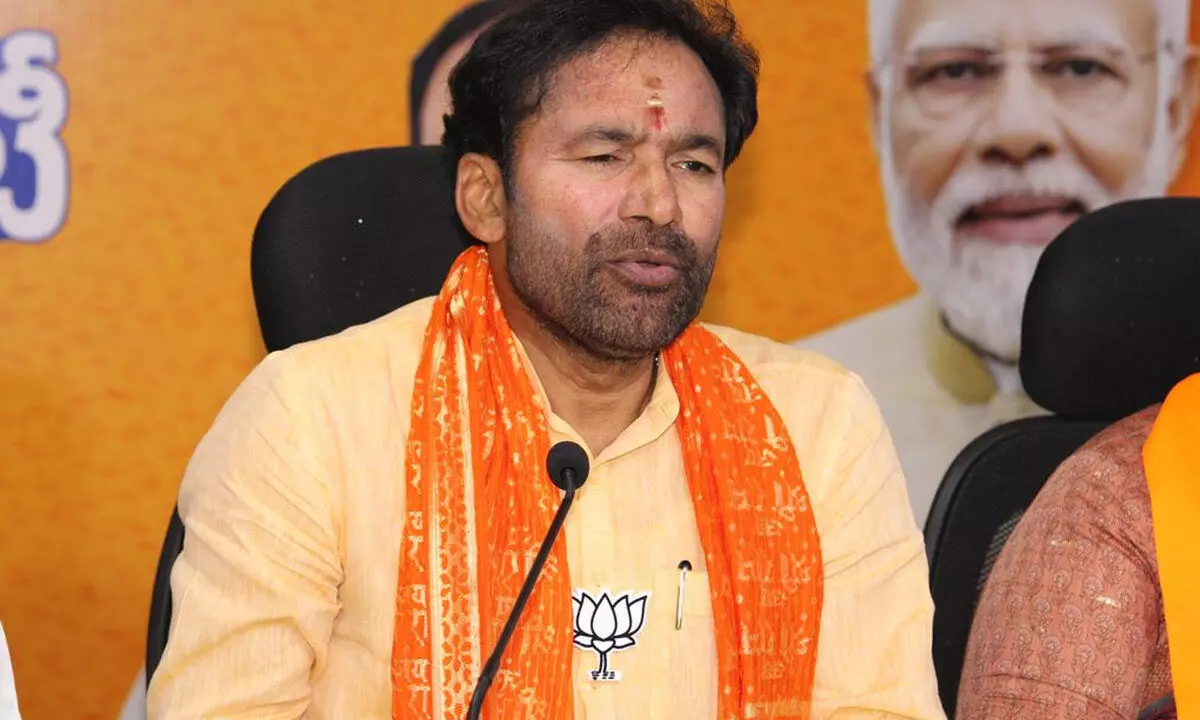
The Union Government, driven by its mission to position India as a developed nation by 2047, has taken a significant step forward by deciding to implement Simultaneous Elections.
New Delhi: The Union Government, driven by its mission to position India as a developed nation by 2047, has taken a significant step forward by deciding to implement Simultaneous Elections. This is a crucial step to put an end to the frequent and at times continuous election cycle process for assemblies and parliament that results in restrictions for decision making creating obstacles for development.
Union Minister for Coal and Mines, G. Kishan Reddy, welcomed this decision, calling it a commendable move that will save expenditure, improve productivity and level the playing field for regional parties.
He highlighted that for the past five years, elections have been held continuously in various parts of the country that has led to the imposition of the Model Code of Conduct. This, in turn, has obstructed crucial policy decisions and in some instances, even routine decisions could not be made. Furthermore, the provision of basic services has also been affected, with public rallies and election-related activities causing significant inconvenience to the general public. He said “Continuous non-simultaneous elections not only cause disruptions to development work due to policy paralysis from the imposition of the Model Code of Conduct (MCC) but also leads to voter fatigue and a burden on crucial manpower deployed during election time”
G. Kishan Reddy pointed out that conducting separate elections has placed a substantial financial burden on the exchequer, with the costs for Parliament and State Assembly elections exceeding ₹4,500 crores.
In a country as diverse as India, elections provide a platform for various parties, including regional parties that are focussed on regional or local issues. In parliament elections, the focus is on national priorities and the holding of simultaneous elections would ensure a focus on both national concerns as well as regional issues making it a level playing field for all parties including regional parties. The Minister further noted that the continuous election cycle has led to voter apathy, with a clear decline in voter turnout due to voter fatigue and simultaneous elections would address this issue effectively.
The Minister also highlighted several economic reasons for conducting simultaneous elections. He highlighted the Ramnath Kovind panel’s observations on inflation stating that while inflation rates generally drop around both types of election cycles, they drop more around simultaneous episodes with an estimate of 1.1 percentage point larger fall in inflation during simultaneous elections compared to non-simultaneous elections. The Minister observed, “The fact that simultaneous elections leads to lower inflation is a bonus for the common persons of the country”
Similarly, the committee, chaired by Shri Ram Nath Kovind, highlighted that the real GDP growth is higher following episodes of simultaneous elections, while we find a decrease post the non-simultaneous episodes. The magnitudes suggest approximately 1.5 percentage points higher real national growth during simultaneous elections as compared to non-simultaneous elections. To contextualise this magnitude, 1.5 percent of GDP equates to INR 4.5 lakh crores in the financial year 2024, which is equivalent to half of the government's public expenditure on health and one-third of its spending on education.
Taking these factors into account, the committee strongly recommended the need for simultaneous elections and submitted its report to the Union Government. Additionally, the committee proposed the implementation of a common electoral roll and voter ID card for all elections, which would further protect voters' rights and to facilitate this, the committee suggested amendments to Article 325 of the Indian Constitution.
G Kishan Reddy observed that out of the 47 political parties consulted, 32 responded positively to the concept of simultaneous elections. The committee concluded that this move would reduce costs, promote social harmony, and stimulate economic development. Based on this report, the Union Government has decided to move forward with the implementation of simultaneous elections.
Kishan Reddy also commended the decision of the committee to conduct elections in two phases : first for the Parliament and State Assemblies, followed by Local Body elections within 100 days. The Minister felt that completing the election process within a maximum of six months would allow the government to focus on national development for the remaining four and a half years.
The Minister expressed his satisfaction that the decision was taken just as Prime Minister Narendra Modi had emphasised the importance of simultaneous elections during his Independence Day address from the Red Fort which coincides with the government reaching its milestone of 100 days in office. He recalled that from 1951 to 1967, simultaneous elections were held in the country, after which were held separately due to several factors. He also noted that both the 170th report of the Law Commission in 1999 and the 79th report of the Parliamentary Committee in 2005 stressed the need for simultaneous elections for Assemblies and Parliament.
Kishan Reddy mentioned that the Cabinet has encouraged a nationwide discussion on the matter and has also decided to form a committee to oversee the implementation of simultaneous elections.

